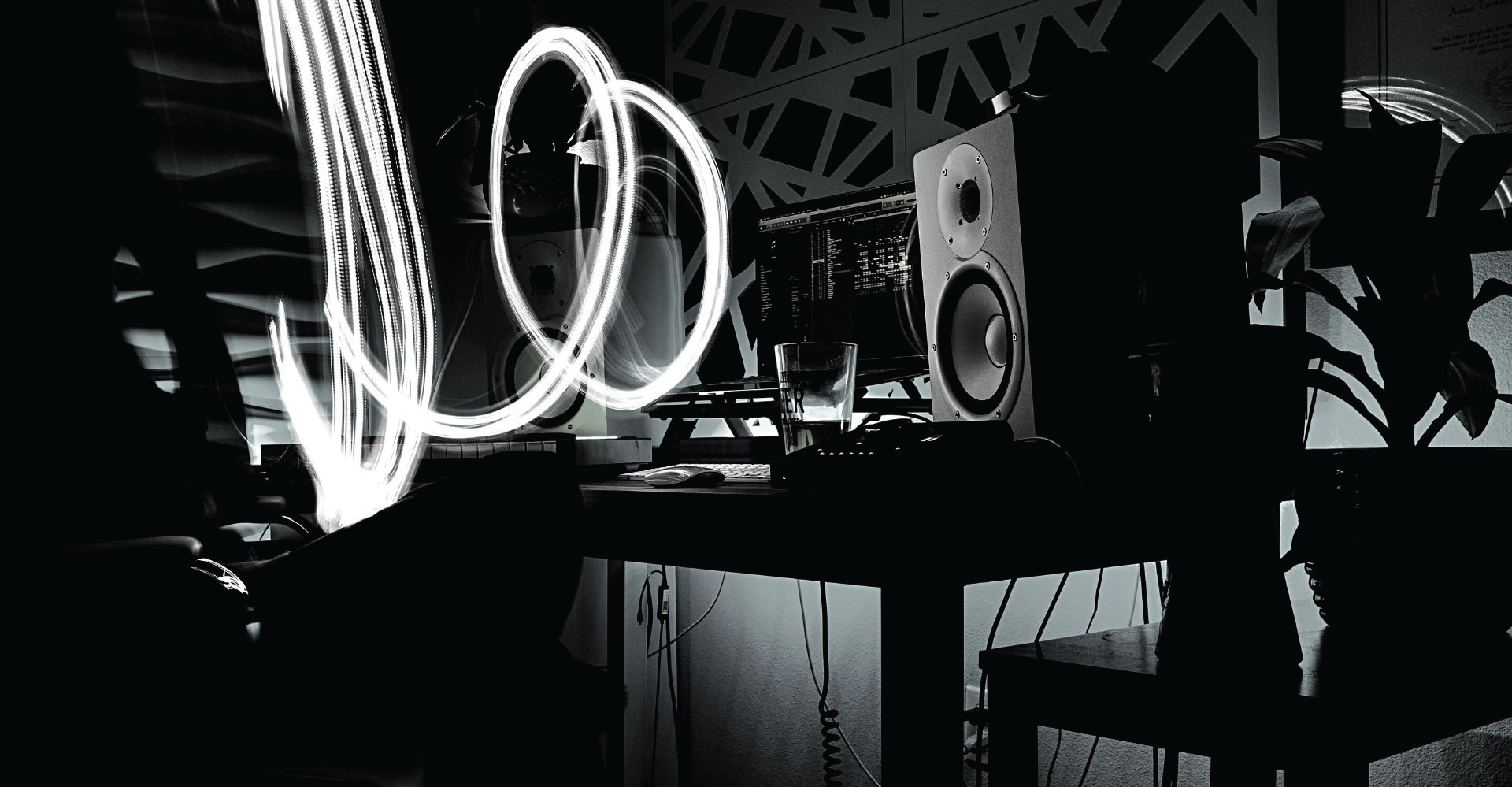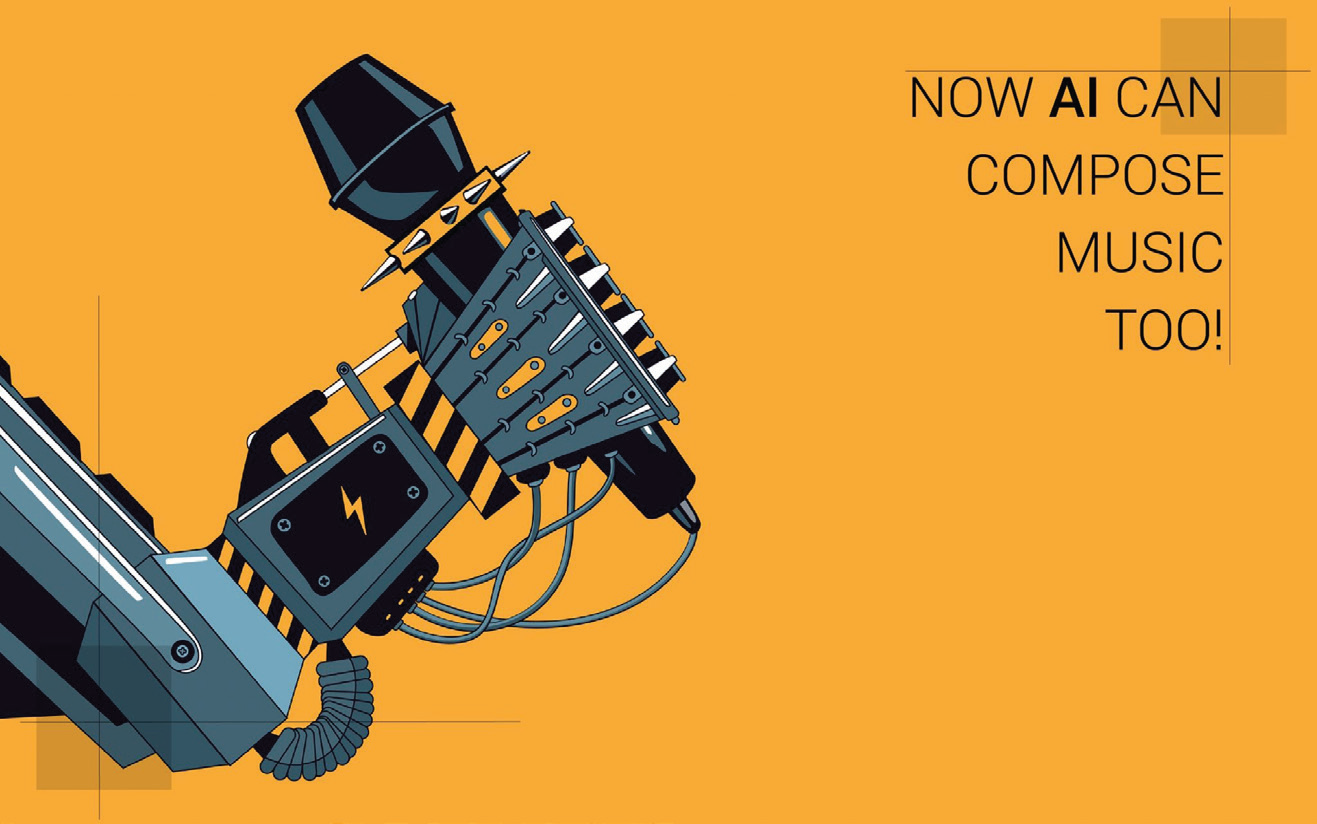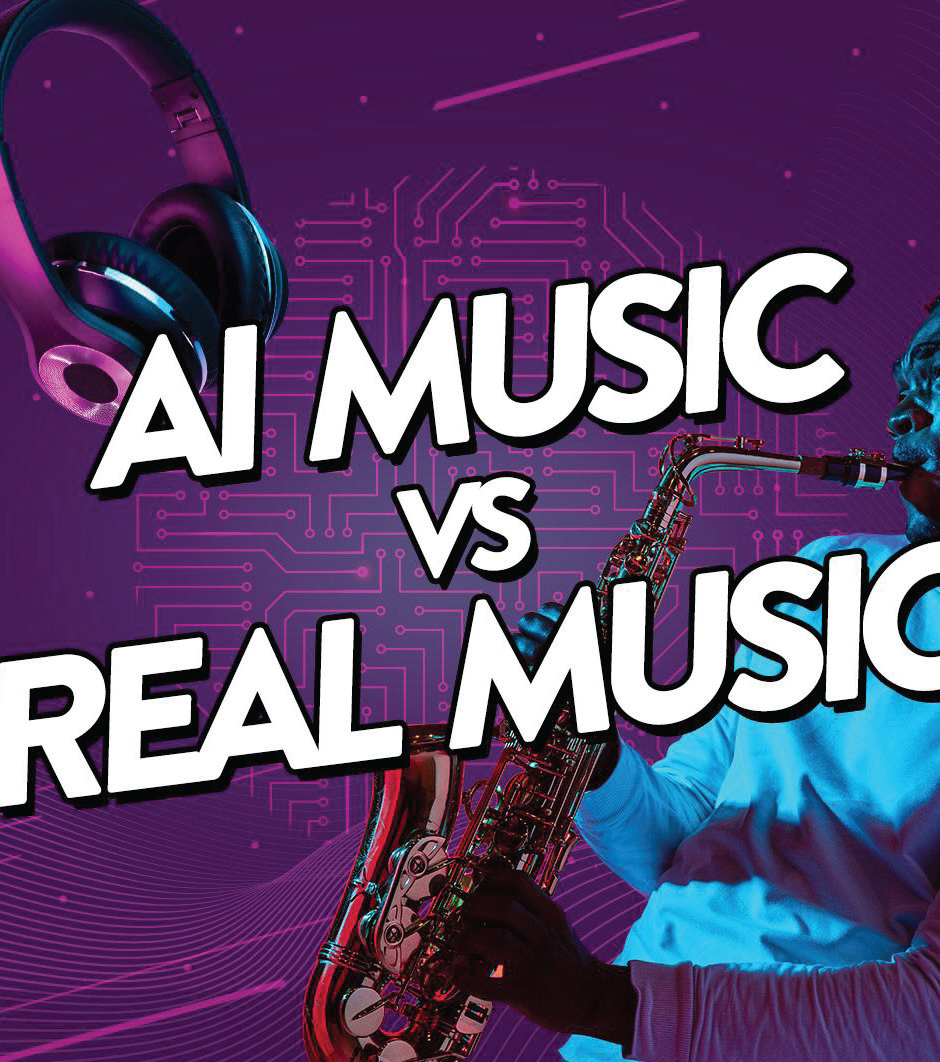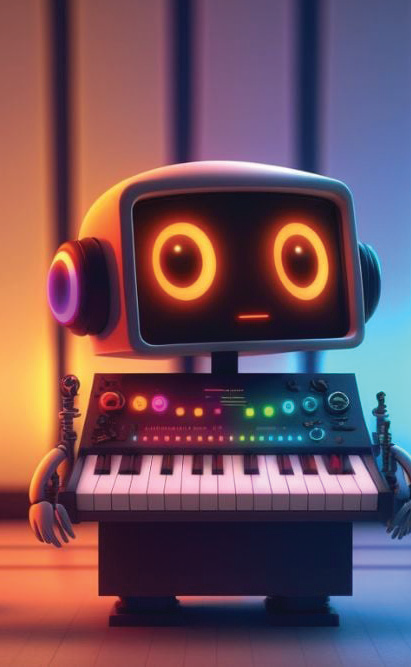
Artificial Intelligence (AI) has revolutionized numerous industries, and the world of music is no exception. Over the years, AI has been increasingly integrated into various aspects of music creation, production, and consumption. With each passing year, advancements in AI technology have pushed the boundaries of what is possible in music composition, performance, and even emotional engagement. In this article, we will explore the latest developments in AI- powered music technology as of 2023 and discuss how it has transformed the landscape of music.
One of the most signifi cant applications of AI in music is its ability to generate original compositions. With recent updates in 2023, AI algorithms have become more sophisticated and capable than ever before. These algorithms can analyze vast amounts of musical data to identify patterns and create unique melodies, harmonies, and even lyrics.
AI tools are not limited to replacing human musicians; they can also serve as collaborative partners for artists. In 2023, we are witnessing a surge in AI-powered tools that assist musicians during their creative process by suggesting chord progressions, melodies, or even entire arrangements based on their input.

AI has also made signifi cant strides in improving the quality and effi ciency of music production processes. From audio mastering to sound design and mixing, AI algorithms can analyze audio tracks to enhance their sonic characteristics automatically.
The integration of AI in live performances has become increasingly prevalent in recent years. In 2023, we are enhancing the emotional depth of AI-generated compositions by incorporating sentiment analysis algorithms and understanding musical context better.
witness the emergence of AI-powered virtual band members and interactive stage setups that respond to the performers’ actions. This section will explore how these technologies have transformed live music experiences, blurring the lines between human and machine performance.
AI algorithms have revolutionized the way we discover and consume music. In 2023, personalized music recommendation systems have become more accurate and tailored to individual preferences, thanks to advancements in machine learning techniques.
One of the most intriguing aspects of AI-generated music is its ability to evoke emotions in listeners. Recent updates in 2023 have focused on
First and foremost, AI can help singers, composers and performers in their musical training. This applies to everything from learning music theory and instruments to training your ears and learning new songs. For example, the AI-powered music learning platform Chodify can extract chords from any audio source and display them on your screen in seconds. Having trouble remembering the chords for your specifi c chords.
favorite niche songs? Chordify can help. Want to learn songs on guitar using only familiar chords? The platform also allows you to search for songs by specifi c chords.
Open AI’s ChatGPT helps aspiring songwriters generate lyrics and overcome writer’s block. You can ask the platform for feedback and suggestions on what you’ve written, and ask for help with rhyming or choosing different words. Think of it like a thesaurus or dictionary. If you want to go one step further, you can even have a conversation and explore the themes, emotions and moods of the different songs you want to convey.
If you’re not really into the idea of ??having an AI write your songs, you can always use this tool to mix and master your tracks. AI-powered mixing algorithms analyze tracks and automatically adjust levels, pans and EQ.
It can aid compression, remove harsh frequencies or unwanted noise. Most of these tools work as plug-ins for other software programs such as iZotope Neutron and Waves eMotion LV1.
Some digital music distributors for streaming services such as LANDR already offer AI mastering services at signifi cantly lower prices than audio engineers typically charge.
The AI can help you separate specifi c instruments or vocals from instruments in your music production. For example, if you’ve sampled a track but want to remix just the vocal melody, you can use Deezer’s LALAL.AI or Spleeter tools to extract the vocals from his tracks with instrumental backing.
As we look ahead into the future of music with the latest update in 2023, it is evident that AI will continue to play a pivotal role in shaping the industry. From composition and production assistance to personalized curation and emotional engagement, AI has transformed various aspects of music creation, consumption, and perform.
At the top of our list of best AI music generators, Amper Music is one of the easiest AI music generators to use and a great choice for anyone looking to get started with AIgenerated music. Music tracks are created from pre-recorded samples, so no deep knowledge of music theory or composition is required to use Amper. These are then converted into real audio that can be modifi ed using musical keys, tempos, individual instruments, etc. For example, you can tune the entire instrument to the mood or atmosphere you want to achieve. Cloud-based platform is the perfect choice for content creators and individuals looking to develop soundtracks and sounds for games, movies and podcasts. The premium edition gives you even more options as an artist. Here are some of the main advantages of Amper Music:



* Quickly create music for a wide range
of applications (podcasts, movies, and
video games)
* Millions of samples and many
varieties of instruments
* Tools for improving music production
* Cloud-based platform
Opening Hours:
24/7
Address: Tradex Mena International Consulting Group L.L.C-FZ 6th Floor, Business Center, The Meydan Hotel Grandstand, Meydan Road, Nad Al Sheba, Dubai, United Arab Emirates
+971 50 240 9735
Address: TRADEX INTERNATIONAL CONSULTING DANIŞMANLIK
itH. iHr. ve TiC. LTD. ŞTi.
Tomtom Mah. istiklal Cad. Beyoğlu iş Merkezi No.187 iç Kapr No: 4 Beyoğlu/iSTANBUL Beyoğlu V.D. 8591125255